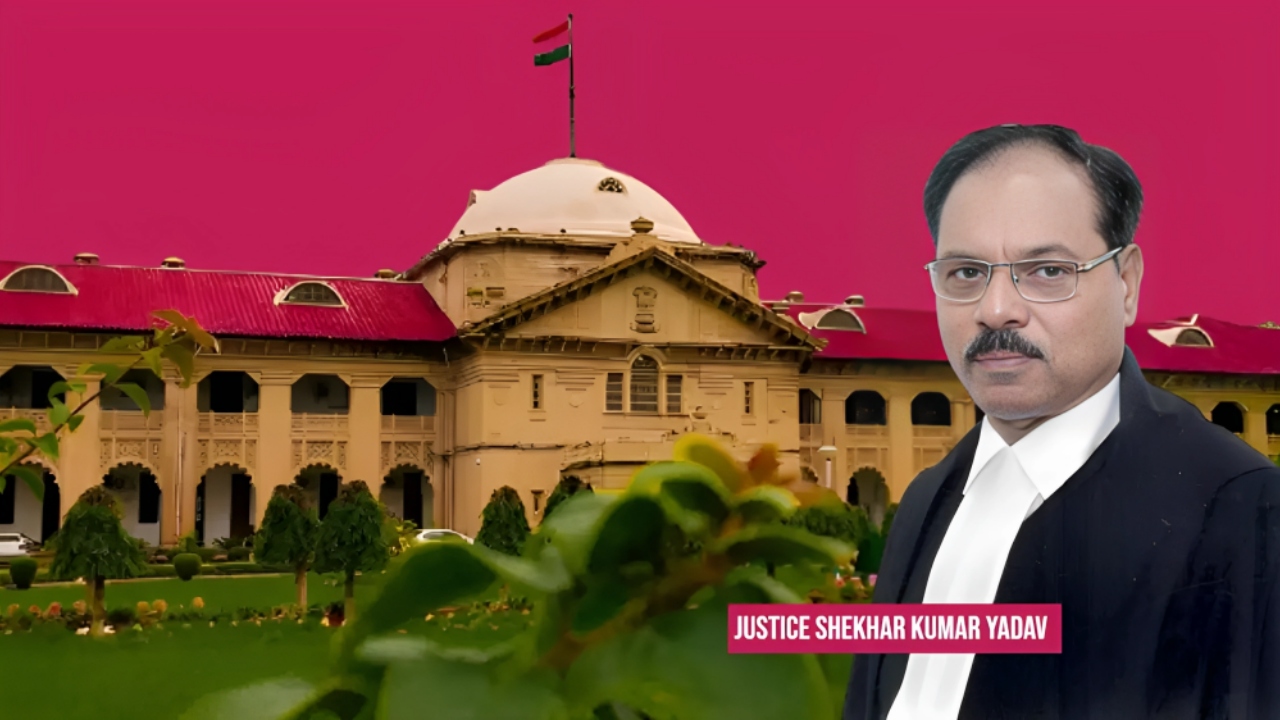 |
|
The Indian legal landscape is currently embroiled in a significant controversy involving Justice Shekhar Yadav of the Allahabad High Court. Thirteen senior advocates of the Supreme Court have penned a letter to Chief Justice of India Sanjiv Khanna, demanding a thorough investigation into Justice Yadav's alleged hate speech delivered at a Vishva Hindu Parishad (VHP) event. The advocates' plea underscores the gravity of the situation, arguing that Justice Yadav's speech not only violates his oath of office but also undermines the fundamental principles of judicial impartiality and the constitutional values of equality and secularism. The letter meticulously details the inflammatory and divisive nature of Justice Yadav's remarks, citing specific instances of communal rhetoric and derogatory comments against the Muslim community. The advocates argue that these statements represent a blatant disregard for the principles enshrined in the Indian Constitution and constitute serious offenses under existing law.
The letter's central argument rests on the precedent set by the Supreme Court's ruling in K. Veeraswami v. UOI (1991). This ruling emphasizes the Chief Justice of India's crucial role in matters concerning the conduct of judges and mandates consultation with the CJI before initiating criminal proceedings against a judge. By invoking this precedent, the thirteen advocates are not only seeking an investigation but also highlighting the constitutional imperative to uphold the integrity of the judiciary. They assert that Justice Yadav's actions necessitate the intervention of the Central Bureau of Investigation (CBI) to ensure an impartial and independent investigation, thereby safeguarding the judicial system's credibility and the public's faith in it. Furthermore, the letter cites previous instances where the Supreme Court dealt with similar allegations against sitting judges, emphasizing the necessity of swift and decisive action in such cases to maintain the judiciary's reputation.
The letter also reveals that Justice Yadav's appointment to the Allahabad High Court was previously opposed by former Chief Justice of India, Dr. D.Y. Chandrachud, due to concerns about Yadav's insufficient work experience and his apparent ties to the Rashtriya Swayamsevak Sangh (RSS) and a BJP minister. This past opposition adds another layer of complexity to the current situation. The advocates meticulously document instances from Justice Yadav's speech that directly contravene his oath of office and the Supreme Court's Restatement of Judicial Values, which explicitly underscores the importance of judicial impartiality and the need for judges to maintain a high standard of conduct that fosters public trust. The detailed account of the speech, including its inflammatory language and discriminatory sentiments, leaves no room for misinterpretation and strongly supports the advocates’ claim of hate speech. The advocates' action reflects their commitment to upholding the integrity of the judiciary and preventing any erosion of public trust in its ability to dispense justice impartially.
The advocates' call for a CBI investigation is not merely a request for accountability; it's a plea to safeguard the very foundations of the Indian judicial system. The implications extend far beyond the individual case of Justice Yadav. It speaks to the broader concern of maintaining the judiciary's impartiality and independence, ensuring that judges uphold the constitutional values they are sworn to protect. The demand for a CBI inquiry reflects the gravity of the situation and the urgent need for a transparent and impartial investigation. The outcome of this case will likely set a significant precedent, shaping how future allegations of judicial misconduct are handled and impacting public perception of the judiciary. The Supreme Court's response and subsequent actions will be closely watched, not only in India but also internationally, as they will significantly influence the perception of the Indian judicial system's commitment to upholding its own ethical standards and the rule of law.
The use of the K. Veeraswami v. UOI (1991) precedent is particularly significant, as it explicitly addresses the role of the CJI in cases involving judicial misconduct. This legal foundation lends considerable weight to the advocates' argument and places a clear onus on the Chief Justice to act decisively. The inclusion of specific references to Articles 14, 21, 25, and 26 of the Constitution further reinforces the seriousness of the allegations and positions the advocates’ concerns within a robust constitutional framework. The reference to the Supreme Court's handling of similar situations in the past, such as the case involving Justice V. Ramaswami, illustrates the established procedures for dealing with accusations of judicial misconduct and sets a precedent for expected action in the present case. The letter’s comprehensive and well-documented nature strengthens the advocates' case and reinforces the seriousness of their concerns. The detailed referencing of legal precedents and constitutional provisions serves to lend credibility to their demand for a CBI investigation.
